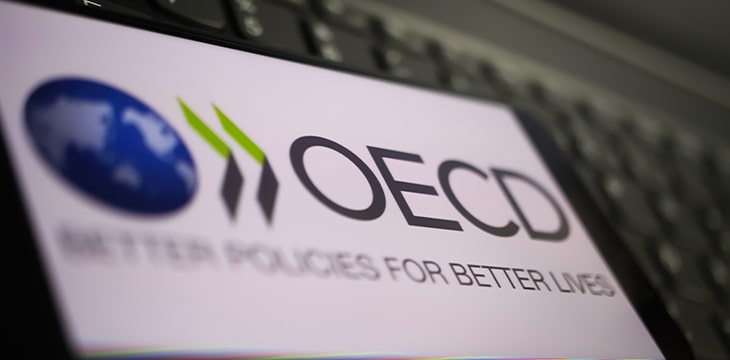|
Getting your Trinity Audio player ready...
|
If you’re a regular CoinGeek reader, you’ll know that we constantly report on new regulations, laws, and requirements related to digital currencies and blockchain technology.
In the past couple of years, we’ve seen massive changes to how digital assets are treated by governments as they seek to tame the Wild West era of the industry and gain some degree of control over the burgeoning technology.
Now, the Organization for Economic Cooperation and Development (OECD) has proposed a new tax transparency framework for digital currencies and has opened it for public comment.
What is the OECD proposing, and why does it matter?
The OECD acknowledged that digital currencies bring new challenges to the current Common Reporting Standards used by tax authorities to maintain visibility on both transactions and the location of things like electronic money and other assets. It said that the digital asset markets posed a “significant risk” to tax transparency around the world and that authorities could not maintain “adequate visibility” when dealing with the new asset class.
In its report, the OECD acknowledged that the current reporting standards fall short when it comes to ‘crypto,’ and it proposed a new tax transparency framework to modernize them. The proposal would place new reporting obligations on digital asset service providers such as exchanges. The new framework would require them to better identify users and report on certain transactions.
In addition to this, the OECD aims to amend the current Common Reporting Standards to bring digital currencies and other items like NFTs within their scope.
Walls are closing in as digital currency lies crumble
The OECD joins a growing list of governments and international organizations that have expressed concern about the state of the industry, and which intend to do something about it.
Earlier this year, the European Union banned anonymous digital currency transactions, and SEC Chairman Gary Gensler vowed to bring the “Wild West” era of the digital currency industry to an end. Governments are known for acting slowly, but this trend is only picking up momentum, and as international bodies like the OECD jump on board, it’s only going to accelerate the pace with which the inevitable happens.
While some in the industry will lament the involvement of these large, bureaucratic institutions in making rules to govern digital currencies and other assets, the truth is that it was always going to happen. Dr. Craig Wright, the inventor of Bitcoin, told us years ago that governments would not stand by and allow tax evaders and criminals to use digital currencies to break the law. They can take time to react and adapt, but react and adapt they do, and we’re seeing that play out in real time.
As the new OECD proposal shows, these institutions can update and alter the rules so that they suit the challenges of the time. Now that international institutions are getting involved, the rules will only become more synchronized across the globe, and there will be nowhere to hide for exchanges and other intermediaries who are subject to them.
Some misconceptions about Bitcoin at the highest levels
Yet, even the OECD seems not to fully understand how digital currencies and assets like Bitcoin work. Far from being cloaked in cryptography and transferred in a decentralized manner, as their report suggests, the Bitcoin blockchain presents in clear text and easily identifiable nodes can be compelled by the law to freeze wallets or blacklist transactions. The Bitcoin ledger can actually increase visibility on where money is, where it has moved, and who possess it. This misunderstanding is in large part because the myths surrounding so-called “cryptocurrencies” have made their way right to the top of governments and global institutions.
The OECD and similar organizations should know that Bitcoin, as designed by Satoshi Nakamoto, can help them with their goals of increased transparency and fostering prosperity. It can unify the world’s records on one immutable ledger that can be audited by anyone, anytime, and can usher in a new era of total transparency and increased efficiency.
Bitcoin is nothing like the commonly held view of it. It was designed by a career auditor for the specific purposes of ushering in a more transparent, less corrupt world. However, until that is widely understood, passing new rules to force intermediaries to at least keep records of who has what and where is probably a good idea.
Watch: CoinGeek New York panel, Where does Bitcoin’s real value come from?
https://www.youtube.com/watch?v=IBAJr8vP5Bw

 03-03-2026
03-03-2026 




